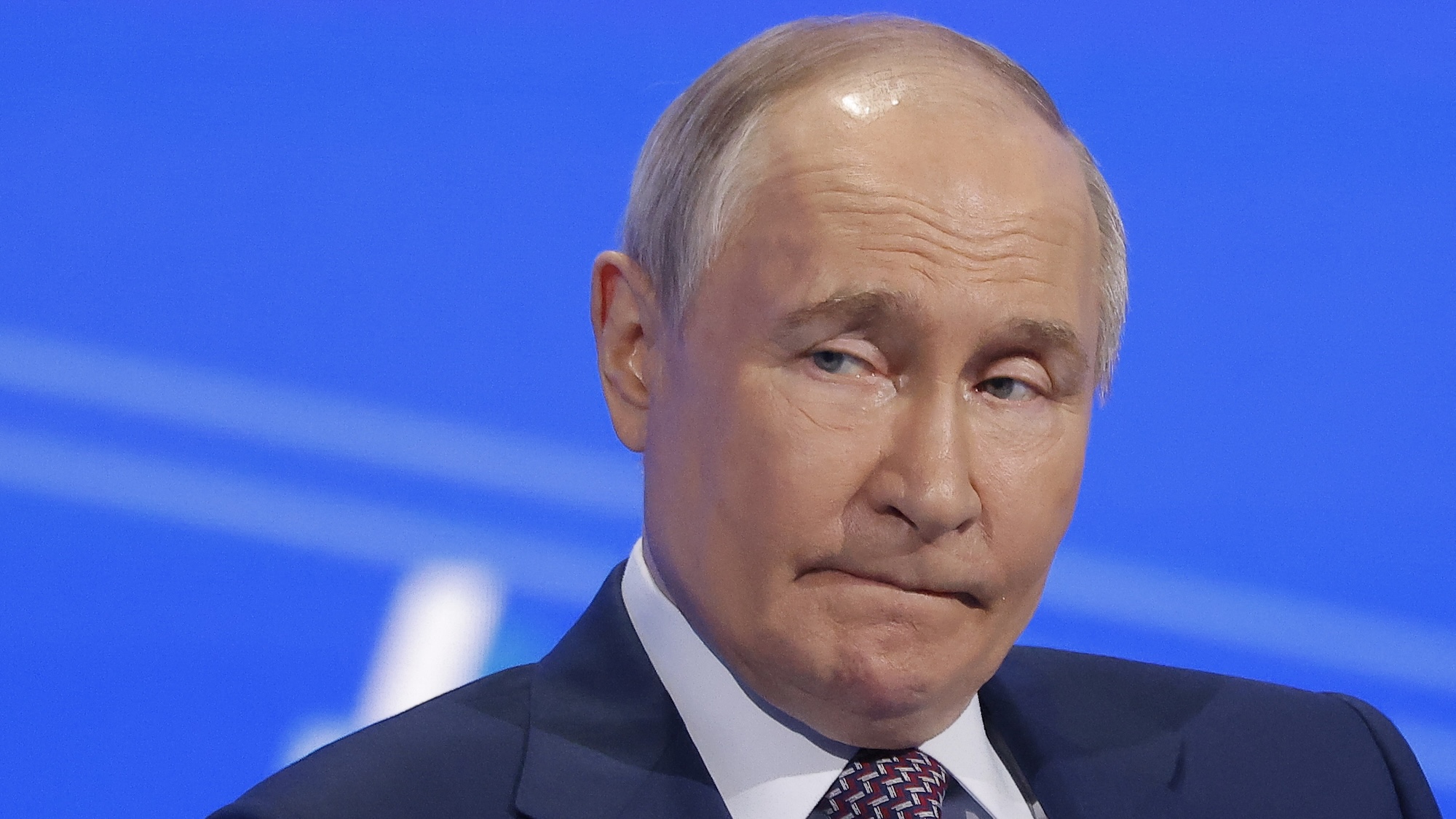Did Vladimir Putin just play Donald Trump?
The Russian president rejected a full ceasefire after long conversation with his US counterpart

A free daily email with the biggest news stories of the day – and the best features from TheWeek.com
You are now subscribed
Your newsletter sign-up was successful
Just hours after the White House announced that Vladimir Putin had agreed to a temporary ceasefire on Ukraine's energy infrastructure, Russia launched air strikes targeting exactly that.
It calls into question the Trump administration's "first real foray into wartime diplomacy" and whether or not it has been "hopelessly bluffed" by the Kremlin, said CNN's international security correspondent, Nick Paton Walsh.
In the two-hour call between the two leaders, Putin gave "just enough" for the US president to claim that he "made progress towards peace in Ukraine", but the pushback on a formal ceasefire and subsequent air strikes are "more proof that Russia has no interest in ending its invasion", said BBC Eastern European correspondent Sarah Rainsford.
The Week
Escape your echo chamber. Get the facts behind the news, plus analysis from multiple perspectives.

Sign up for The Week's Free Newsletters
From our morning news briefing to a weekly Good News Newsletter, get the best of The Week delivered directly to your inbox.
From our morning news briefing to a weekly Good News Newsletter, get the best of The Week delivered directly to your inbox.
What did the commentators say?
The White House has taken a hard line in its talks with Ukraine, but the transcript of the Trump/Putin call "contains not a hint of pressure" and shows the Russian president "once again" has "paid no price" for defying a "public demand from Mr Trump", said David Blair at The Telegraph. President Trump's "push for a quick deal had emboldened Putin", said Alexander Gabuev, director of the Carnegie Russia Eurasia Center in Berlin, in the Financial Times, so the lack of willingness to concede on Russia's part "shouldn't be surprising".
The "long-heralded" call showed "almost nothing" except that Putin can "outmanoeuvre his counterpart effortlessly", added Paton Walsh. According to the Kremlin, the partial ceasefire is limited to "energy infrastructure", while the US version of the conversation referred to "energy and infrastructure", both countries portraying "two entirely different sets of ideas" on what was agreed.
Even the more restricted reading of the scope of the partial ceasefire is still a "self-serving concession" for Putin, said Jamie Dettmer at Politico. It will "save Russia's energy system", an area specifically targeted since Ukraine "dramatically increased the range" of its missiles. However, the biggest takeaway from the talks is that Trump is "all too ready to go along with Putin", which means that a "real breakthrough is a remote prospect".
There is "some promise" in the talks, particularly in the acknowledgement in the call transcript that a "ceasefire is a step-by-step process", said Mark F. Cancian and Maria Snegovaya at the Center for Strategic & International Studies. But similar steps have been discussed before "under the Biden administration", so there is little yet to suggest the current agreement is a "radical" step forward.
A free daily email with the biggest news stories of the day – and the best features from TheWeek.com
What next?
Putin shows no indication of "resiling from his key aims since the beginning of the war", said regional expert Jon Richardson on The Conversation, and though Ukraine "cautiously" accepted the recent ceasefire deal, its "bottom line remains firm". The Russian president may be happy to "string out the ceasefire talks as long as he can" so his troops can "consolidate their hold on Ukrainian territory".
The Kremlin "sees talks as a path towards victory", concluded Owen Matthews in The Spectator, and just as Putin's "invasion was diplomacy by other means, so his peace overtures are war by other means".
Richard Windsor is a freelance writer for The Week Digital. He began his journalism career writing about politics and sport while studying at the University of Southampton. He then worked across various football publications before specialising in cycling for almost nine years, covering major races including the Tour de France and interviewing some of the sport’s top riders. He led Cycling Weekly’s digital platforms as editor for seven of those years, helping to transform the publication into the UK’s largest cycling website. He now works as a freelance writer, editor and consultant.